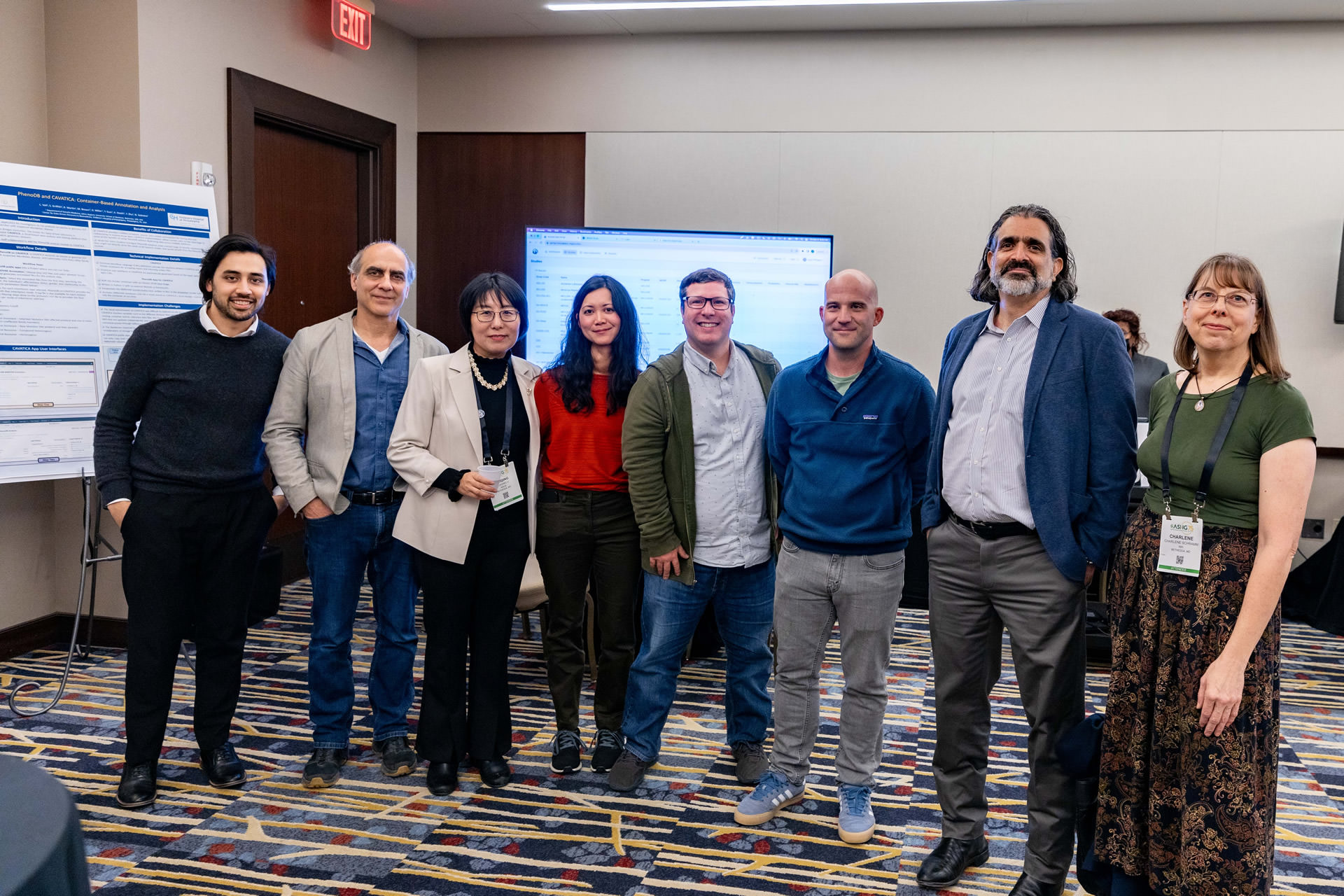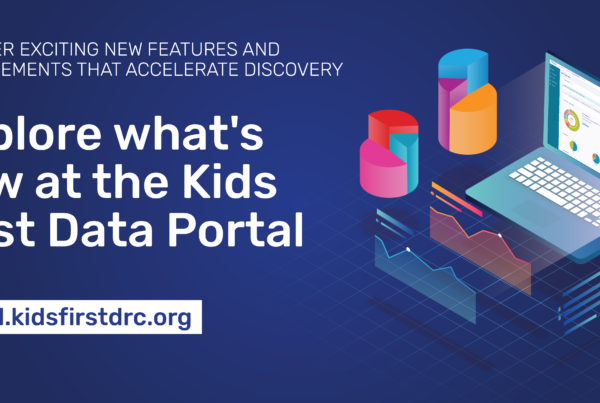In the dynamic ambiance of ASHG 2023 in Washington, DC, the collaborative poster session, led by the NIH Common Fund’s Gabriella Miller Kids First Pediatric Research Program (Kids First) and the NIH Investigation of Co-occurring conditions across the Lifespan to Understand Down syndromE (INCLUDE), united researchers and stakeholders. The primary objective? Showcasing cutting-edge research emerging from the data and fostering networking collaborations to propel scientific advancement by bringing together brilliant minds. The ancillary event gathered 148 attendees and 31 poster presentations.
The networking event aimed to shine light on supported research and ignite joint efforts in pediatric research, with a specific focus on childhood cancer, structural birth defects, and Down syndrome co-occurring conditions. This included not only highlighting ongoing research but also creating an environment that facilitated valuable connections among participants, amplifying the impact of collective intellectual contributions.
Event attendee Eric Wenger, Technical Project Manager at the Center for Data-Driven Discovery in Biomedicine (D3b) at the Children’s Hospital of Philadelphia, emphasized the human element within the projects highlighted in the poster session saying, “Projects revolve around human interaction. The program’s ability to harmonize diverse datasets and create a framework for expansion built from collaboration is vital for improving the lives of children with a cancer diagnosis or other rare disease.”
Impact on Awareness
One of the key takeaways from conversations at the event include the ongoing need for increased public awareness about resources Kids First and INCLUDE are making available for data-driven pediatric research. Kids First and INCLUDE are addressing this call for action by developing analysis tools in a cloud workspace environment, offering training, and adopting global standards for data sharing. The networking event at ASHG 2023 built awareness of the INCLUDE and Kids First programs, positioning them as catalysts for forging connections and potential breakthroughs by getting people more familiar with the programs’ offerings.
Ingo Helbig, MD, of Children’s Hospital of Philadelphia (CHOP), emphasized the vital role of programs like these, stating, “If these programs weren’t around, they would have to be invented. It’s really important because pediatrics always comes last, but it’s important to have a program where kids really come first. We can ask questions that we typically don’t have space for.”
Humanity in Science
In the midst of cutting-edge research and technological advancements, it is essential to pause and reflect on the human element in scientific research.
Huiqing Li, MD, PhD, of the National Heart Lung & Blood Institute at NIH, expressed enthusiasm about the substantial intersection between the two programs, emphasizing, “We’re so glad to see a lot of intersection between the two programs. We need to join the effort to conquer these rare diseases.”
The foundation of progress in understanding and combating childhood diseases is collaboration. By empowering the flow of knowledge and expertise, this interconnection facilitates the convergence of brilliant minds to generate insights. Across borders, these partnerships influence ethical considerations and foster patient-centric approaches, resulting in tangible benefits for individuals and communities.
Fostering a sense of humanity in science goes beyond the confines of laboratories and conference rooms. The principles of ethical consideration affect the very fabric of medical advancements, influencing patient-centered approaches and the translation of research findings into tangible benefits for individuals and communities.
Highlighting the transformative power of data-driven discoveries with global implications, Marcia Fornier, PhD, from Kids First and the Eunice Kennedy Shriver National Institute of Child Health and Human Development, expressed pride in the collaborative efforts with international researchers, stating, “Data is driving discoveries that can impact lives. The NIH is proud to collaborate with researchers internationally to make this come true.”
The Kids First/INCLUDE joint poster session at ASHG 2023 stands as a testament to the potency of collective efforts in advancing pediatric research.
As ASHG 2023 concluded, it left an indelible mark—a community devoted to unraveling new insights into childhood diseases, a mission at the core of the Gabriella Miller Kids First Pediatric Research Program. Kids First’s commitment to collaborative research, data sharing, and empowering local expertise aligns seamlessly with the event’s overarching goal of uncovering the causes of childhood cancers and structural birth defects to improve preventative measures, diagnostics, and therapeutic interventions.










